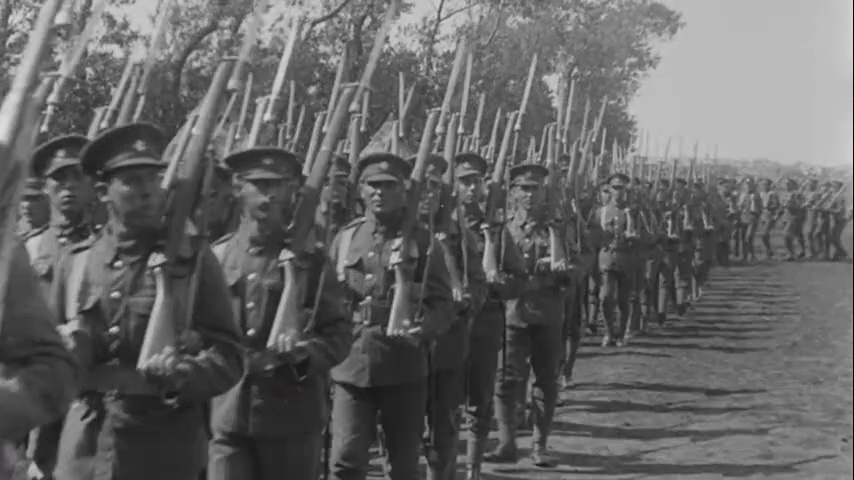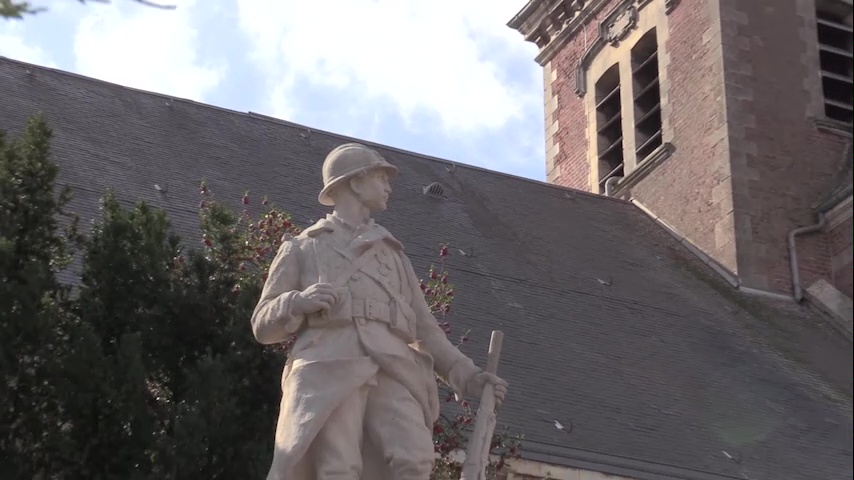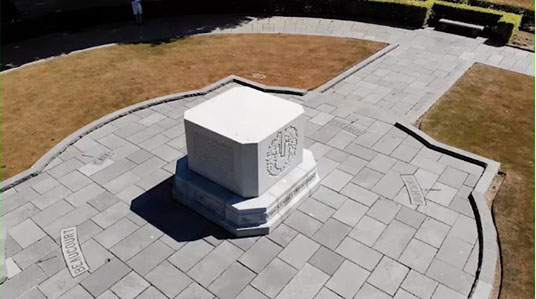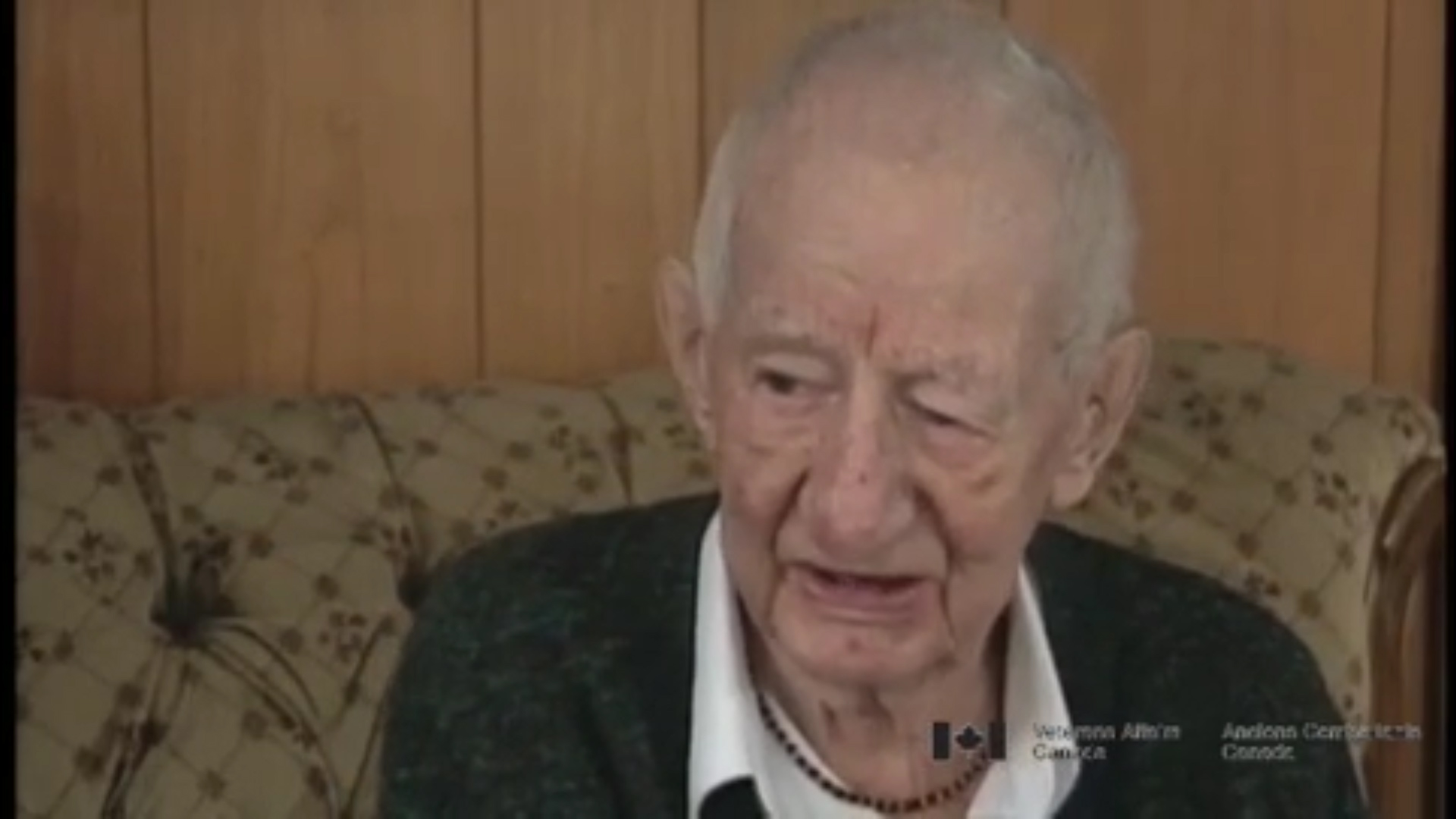Experience in Trenches. Prisoner of War.
Heroes Remember
Experience in Trenches. Prisoner of War.
Transcript
Interviewer: Were you in the trenches?
Yes, in the trenches, in, on May the 6th.
We went in the trenches, that was the front line.
Interviewer: Yes, what was life like there?
It wasn't too bad, but the Germans broke through on June
the second 1916 from a frontline, and so we force marched up
to hold, to try and hold the line anyway and then on June
the 12th we went up and took our, but with an awful lot of losses
We had 550 and we come out with 112.
Interviewer: Oh dear, that's terrible.
So you saw a lot of the enemy?
Yes, we saw a few of them. But, I think the worst was when we
moved to France. I was sick at the time I didn't have to march
down, they had me in the hospital. So, when we got to France
on the Somme, that was wicked. The mud,
it was all mud everything, was it mud holes you know.
Interviewer: Were you affected by the gas?
Were there any gas raids when you were there?
No, there was no gas at all. You didn't have gas in '16.
Interviewer: Were you wounded?
Yes, that's why I was wounded in the shoulder in on the,
when I was taken prisoner I was wounded in the, I got three holes
in the shoulder from the wounds and that's where the shrapnel
still comes out of you know.
Interviewer: And you were taken prisoner?
Yeah, taken prisoner on September the 28th.
Interviewer: How did they treat you?
Well, I think I had a little bit better treatment than the
average. The, we weren't treated as bad, the British weren't
treated as bad as the Russians. We, we used to have the Russians,
see they were, see they'd be working on farms and if they had
misdemeanour they were sent back to camp and then they gave
them a hellish treatment. In front of the prison,
in front of the British, the British huts you know.
I don't, whether there was supposed to say
this might happen to you some day. Anyway,
I was the interpreter, chief interpreter, and then finally they,
we moved, we were moved to a lumber camp with twenty men
going up and there I was more or less the chief,
but I still worked the same as the other people did.
Interviewer: And how long were you a prisoner?
For over two and a half, two years and a quarter, two years
Interviewer: Until, 'til the armistice?
Till the armistice. Then they come to me and asked,
What do you want to do? Do you want to go right back to camp
now or right away or do you want to wait? If you wait we'll look
after you. You will get the same pay." We got a cent an hour,
but they get the same food. We, had one, one good meal a day
is what they provided us. And the rest was from,
through the parcel post.
Interviewer: Through the Red Cross?
Through Red Cross yeah. We got a parcel about every fifteen days
through the Red Cross.
Interviewer: And they were good to you the Red Cross parcels?
The Red Cross was good and then when we did go on strike
they were holding our parcels for about two weeks anyway,
or three. We were right down to our last tin of,
of corned beef for the twenty of us.
Interviewer: And why, why did you go on strike?
Well, they thought the tin goods contained poison.
So we were going to poison their animals.
And that's the reason we went on strike.
Interviewer: So you as prisoners actually went on strike?
If it had happened in Hitler's time we'd have been dead.
Interviewer: I'm sure you would have been. Yes. That's very
interesting. And who liberated your camp?
Nobody, no after the, as I said they asked me what we want to do.
So I says, "I'll ask the boys. When we get back to camp, I'll,"
our quarters, we were billeted like in a, in a hotel in the dance
hall. So I says, "We'll ask them and I'll let you know in the
morning." So I says, "They have decided to stay there
until the call come." We only went back to the camp for
overnight and the next day we were on a boat out to go to Denmark
Interviewer: Now, so the Germans announced that the,
that the armistice was on to you?
Yeah, they told me right away.
Description
Mr. Gies recalls his experiences in the trenches of France during the First World War. During the Battle of the Somme, he was captured and taken Prisoner of War by the German Army.
Fred Gies
Fred Gies was born on September 17, 1896 in Berlin, Ontario. He enlisted in the army at London, Ontario in 1915. As a member of the 71st Battalion, he arrived at the front line in France on May 6, 1916. Mr. Gies was nearing his 100th birthday when this interview was recorded during the summer of 1996 at his residence in Kitchener, Ontario.
Meta Data
- Medium:
- Video
- Owner:
- Veterans Affairs Canada
- Duration:
- 04:49
- Person Interviewed:
- Fred Gies
- War, Conflict or Mission:
- First World War
- Battle/Campaign:
- Battle of the Somme
- Branch:
- Army
- Units/Ship:
- 71st Battalion
Related Videos
- Date modified:





.png)








